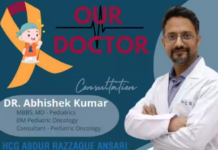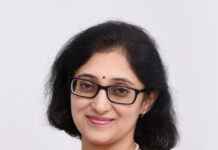Gurgaon, November 07, 2015: India is following the footprints of other developing countries as a vast part of its population is suffering from both communicable and non-communicable diseases. As per National Center for Biotechnology Information (NCBI), US, stroke claims a large number of victims in India with an estimated prevalence rate of stroke range at 84-262/100,000 in rural and 334-424/100,000 in urban areas.
Unfortunately, the health burden caused by stroke is highly underestimated in India. Consequently, it does not get as much attention as other ailments like cardiovascular disease and diabetes.
As per NCBI estimates, India is likely to report1.6 million cases of stroke on an annual basis by the year 2015, of which nearly one-third of them will be disabled. A city like Gurgaon also faces major challenges as far as stroke cases are concerned. Further, a sedentary lifestyle, unhealthy diet, hypertension, long working hours and rising stress levels make people highly susceptible to strokes.
“Stroke occurs when blood flow to the brain gets disrupted causing death of cells. Lack of blood flow caused, either by blockage or by hammeorage or bleeding causes damage to the affected part of the brain. Strokes are classified into two major categories: ischemic and hemorrhagic. Ischemic strokes happen when blood supply is interrupted to the brain whereas hemorrhagic strokes occur if a blood vessel breaks down. Nearly 87% of the strokes are ischemic and the remaining are hemorrhagic,” says Dr (Prof) V S Mehta, Padamshree, Chief of Neurosciences, Paras Hospitals, Gurgaon.
WHO has estimated that by the year 2050, 80% stroke cases would take place in low and middle-income countries such as India and China.
“An altered lifestyle which includes sedentary jobs, high levels of work stress and a lifestyle where smoking and alcohol consumption are considered trendy leads to an increase in stroke cases. Some other risk factors associated with strokes include hypertension, diabetes, obesity, nutritional deficiency and high cholesterol amongst others,” adds, Dr. Mehta.
Stroke symptoms typically start suddenly and are dependent on the area of the brain affected. Watch for the below mentioned signs and symptoms, in case you think that someone is suffering from a stroke:
- Speech problems : A person may face difficulty, confusion while speaking, and understanding.
- Headaches: Severe or sudden headaches may be symptoms of stroke. In such situations, a person experiences dizziness or vomiting.
- Blurred vision: stroke victims may experience blackened or blurred vision.
- Weakness or numbness in body organs: Sudden numbness or weakness may be experienced in face, arm or legs. If you are unable to move your arms and legs freely, these may be signs of stroke. In such cases, a person may also develop paralysis in different body organs.
People residing in urban areas and in a metropolitan city like Gurgaon are more susceptible to strokes because of urbanized lifestyles. It’s necessary to undergo regular medical check-ups and take care of your health in order to prevent a stroke.
· Lifestyle changes need to be made as far as smoking and alcohol are concerned. Smoking increases the risk of having a stroke as it can lead to blood clotting. Thus, one has to quit smoking in order to live longer and healthier.
· Excessive alcohol consumption is responsible for high blood pressure and may lead to irregular heartbeat. These in turn can lead to the risk of strokes.
· A healthy diet, which consists of low-fat, high fibers consisting of fruits and vegetables are recommended for thwarting strokes. Limit the intake of salt in food as it increases the blood pressure and can lead to strokes.
· Exercise is very important to maintain a healthy weight. It can also help in lowering cholesterol level and maintaining proper blood pressure levels. Aerobic activities, cycling, running, yoga and gym exercises are highly recommended.
· Patients suffering from diabetes, high blood pressure, high cholesterol and other medical complications should seek regular medical advice as these conditions make a person more susceptible to strokes.
Corporate Comm India(CCI Newswire)



















